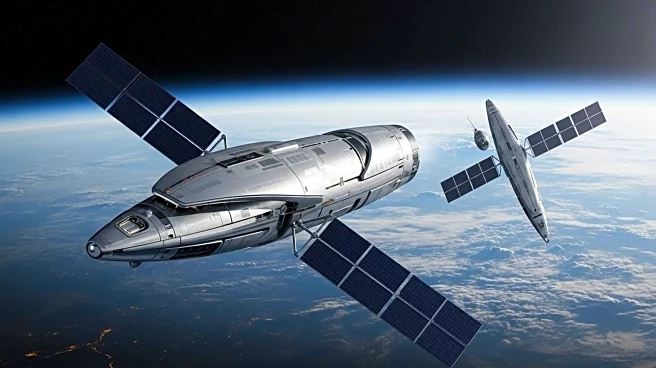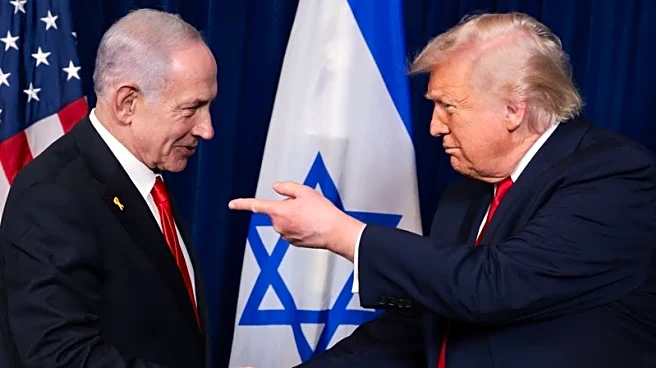What's Happening?
For the first time, the Chinese space agency has contacted NASA to prevent a potential collision in orbit. During a panel at the International Astronautical Congress, NASA's space sustainability director, Drew Alvin, revealed that China requested the American spacecraft to remain stationary while Beijing maneuvered its own assets. This development highlights the growing concerns over space congestion and debris, particularly in Low Earth Orbit (LEO). The U.S. Commerce Department is developing the Traffic Coordination System for Space (TraCSS) to track spacecraft and mitigate conjunction risks. However, the system's effectiveness depends on comprehensive data sharing, which may be hindered if China does not provide necessary information.
Why It's Important?
This event underscores the increasing complexity and risks associated with space operations as more countries and private entities launch satellites and other assets into orbit. China's proactive approach to avoiding collisions reflects its growing reliance on space for various strategic initiatives, including a potential competitor to SpaceX's Starlink and a sovereign Positioning, Navigation, and Timing (PNT) system. The incident also highlights the need for international cooperation and data sharing to ensure the sustainability of space activities. Failure to address these issues could lead to significant operational challenges and increased risks of debris-related incidents.
What's Next?
The development of TraCSS by the U.S. Commerce Department is a critical step towards improving space traffic management. However, its success will depend on international collaboration and data sharing agreements. As China continues to expand its space operations, it may engage more actively in discussions on space sustainability and debris mitigation. The incident may also prompt other nations to reassess their space traffic management strategies and explore new technologies to enhance safety and coordination in orbit.
Beyond the Headlines
The request from China to NASA could signal a shift in international space relations, potentially leading to more collaborative efforts to address space congestion and debris. This could pave the way for new treaties or agreements focused on space sustainability, impacting global space policy and industry standards. Additionally, the incident highlights the ethical considerations of space exploration, including the responsibility of nations to prevent debris creation and ensure safe operations for all space-faring entities.











